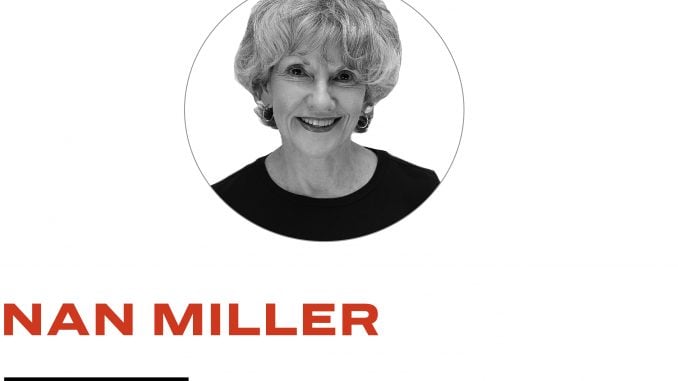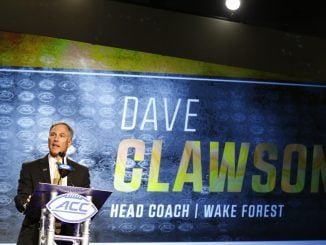
I love Wake Forest. I was there before the ban on drinking and dancing was lifted but there during an era when supplying freshmen with free samples of Winston and Salem cigarettes was standard practice. When friends at other schools asked how I liked being deprived on the one hand and ensnared on the other, I confided that I’d become an artful dodger of certain rules — including what felt like the requirement to smoke.
It was only later that I saw what an advantage I’d had as an undergraduate at Wake Forest. By the end of my sophomore year, I’d been steeped in our Western heritage and taught by professors who loved great works for their timeless insights and perfectly wrought passages, professors who challenged us, inspired us and prepared us for the hazardous business of being adults.
Back in the ’60s, no one could have predicted that the ’80s would bring a nationwide push to replace legendary scholars with a breed that would redefine our heritage as one long procession of pompous white males who hold a Goliath-like grip on power by oppressing women and minorities. By 1991, The Atlantic had redefined higher education as “Illiberal” and featured on its cover a hand pouring gasoline on a stack of great books.
So I was not the only donor who followed developments at Wake Forest to make sure my alma mater hadn’t joined the race to hire scholars who aim “to get away from the notion that literature is sacred,” as Georgetown’s John Glavin famously declared.
Before 2016, I had no reason to doubt the pledge I’d found in Wake Forest’s Strategic Plan — to stand firm against “the undertow of trendiness.” Now I see that the fine print should read “unless, of course, the trend involves rescuing a university from the clutches of the Koch brothers” — for that is precisely the trend Wake Forest followed in 2016.
No one had objected when economics professor James Otteson announced plans to establish an institute that would bring together scholars from a range of disciplines to explore ways to promote happiness or “eudaimonia,” which was Aristotle’s term for human flourishing. Dr. Otteson’s plan fit perfectly Wake’s other mission “to create interdisciplinary institutes” where faculty and students can explore “complex issues” and “engage in actual research.”
Then came the announcement that the Charles Koch Foundation would donate $3.7 million to the Eudaimonia Institute — and the name Koch triggered 189 professors to stage what The Wall Street Journal called an “Anti-Koch Meltdown.” Using tactics set forth by the George Soros-funded movement to UnKoch My Campus, Wake’s faculty senate conducted “an intensive study” that uncovered a Koch plot to build “a robust freedom-advancing network of professors” who would smuggle a right-wing agenda into the Wake Forest curriculum. No matter that Soros himself once admitted to having “messianic fantasies” of imposing a left-wing agenda on his adopted nation.
Perhaps in response to a spate of negative publicity, President Nathan Hatch rejected the faculty senate’s plea to “SEVER ALL CONNECTIONS TO THE CHARLES KOCH FOUNDATION.” Denied an official ruling against “dark money,” the senate sought ways to hamstring its release — and to warn students of the Institute’s stealth plan to push for “lower taxes and less government regulation” (in clear violation of the faculty senate’s plan to quash those ideas).
As an undergraduate studying philosophy under the redoubtable A.C. Reid, I read John Stuart Mill’s appraisal of ideologues who allow free speech only when it conforms to their particular creed: “To refuse a hearing to an opinion, because they are sure that it is false, is to assume that their certainty is the same thing as absolute certainty. All silencing of discussion is an assumption of infallibility.”
Fortunately, absolutists at Wake Forest have failed in their mission to defund the Eudaimonia Institute. In 2019 alone, the Institute sponsored lectures, presentations and conferences for 1,379 faculty and student participants. The bad news is that faculty resistance is behind the Koch Foundation’s recent decision to withhold the final million of its $3.7 million investment in the Eudaimonia Institute.
When Wake Forest professors argue that the pursuit of happiness can be hazardous to student health — from a safe perch secured for them by the sale of cigarettes — they scare off donors to the general fund. So I am not alone in my resolve to give only to the Eudaimonia Institute — where faculty and students can assemble “to explore the moral and economic case for freedom and prosperity” and where they are free to hold and affirm a diversity of opinions.



